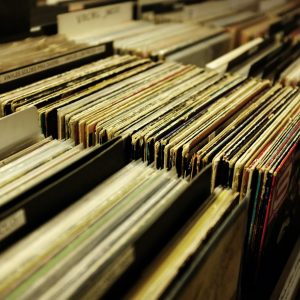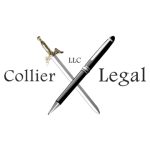Understanding A Patentability Search

Navigation
- Introduction
- Patent law on the patentability search
- Statutory categories of patentable subject matter
- When are these categories important?
- Patentability searches: Anticipation
- How does anticipation affect the search?
- Patentability searches: Obviousness
- What is prior art?
- How to conduct a patentability search
- Consult a patent attorney
Introduction
A patentability search is a search of patent publications and prior art to make a legal determination as to whether an invention is patentable. Patentability searches are generally done by patent attorneys, patent agents, and sometimes specialized patent search firms. Since patentability searches involve legal determinations, inventors should always consult with a patent attorney when conducting the patentability search.
Patentability searches are done for the following types of patent applications:
Patent law on the patentability search
Patent law states that patentability is determined by 3 factors:
- Whether the invention within the patentable statutory categories;
- Whether the invention is anticipated by prior art; and
- Whether the invention is obvious based on the prior art.
Statutory categories of patentable subject matter
The USPTO provides 4 statutory categories of patentable subject matter:
- Machines
- Manufactures
- Compositions of matter
- Processes
There are judicial exceptions to these categories. A judicial exception is subject matter that is an abstract idea, law of nature, or natural phenomenon. These terms are defined in further legal jargon in cases and statutory language on the USPTO website, but are meant in essence to exclude patentability on subject matter that is merely discovered and bears no creative input from the person making the discovery.
When are these categories important?
The statutory categories are important to patents relating to discoveries and processes. Discoveries include chemical compounds, DNA sequences, plants, and organic species. Process patents may include laws of nature, such as the use of a math algorithm, and thus the applicant needs to be aware of these categories and exceptions.
Patentability searches: Anticipation
Patent law defines anticipation as a prior art disclosure that teaches each and every element required by a claim under its broadest reasonable interpretation. This means that a single prior art disclosure must teach each element or anticipation does not apply, unless the remaining elements of the claims are already well known in the prior art. The first prior art reference here is referring to prior art as defined by the USPTO (discussed below). The second reference refers to the subjective knowledge of those skilled in the relevant art. This is a patent office term that creates a legal standard against issuing patents for ideas that are already well known in an industry.
How does anticipation affect the search?
Anticipation is what most inventors look for when they conduct their own search without a patent attorney. However, anticipation is only a small focus for patent attorneys when conducting a patent search. This is because anticipation is much easier to overcome than obviousness and obviousness acts as an extension of anticipation.
Patentability searches: Obviousness
Patent law defines subject matter as obvious when the differences between the invention as a whole and the prior art would be obvious to someone of ordinary skill in the art. Similarly to anticipation, obviousness requires the prior art to disclose a minimum amount of the required elements of an invention. However, obviousness is more difficult to overcome because it allows for prior art disclosures to be combined. Therefore, an examiner could make an obviousness rejection based on a combination of 50 prior art disclosures where an anticipation rejection would be impossible.
What is prior art?
Patent law defines prior art as documents, applicant admissions, public use, public sale, or something “otherwise available to the public”. Documents include publications and patent publications. “Otherwise available to the public” is a catch-all term that, during the application process, will be limited in practice to recorded audio or video. This term was likely created to allow those challenging patents a chance to offer more evidence of public use.
How to conduct a patentability search
Many clients and inventors start by conducting their own search to make sure they are not wasting their time or resources pursuing a patent. If you want to conduct your own patentability search, use the following process as a guide:
- Determine the Statutory Category
- Search for Anticipation Prior Art First
Prior art that anticipates your invention is the easiest and quickest prior art to find. Start with some Google searches for your invention in several keyword variants to see if your invention already exists or is online for sale. Then, move to the USPTO to search for issued patents on your invention.
- Search for Obviousness Prior Art
This consists of searching for the individual elements of your invention as used in your industry. Follow the same path as in step II for each individual element.
- Learn about the ordinary skill in the art
Your invention solves a problem. Do some research as to how others in your industry are solving this problem. If you don’t work in the industry of the subject matter every day, consult with someone who does and see how they approach the problem you are solving.
- Combine Your Prior Art and Skill in the art findings
Looking at your prior art findings, ask yourself if your invention would seem obvious to a coworker or someone in the industry.
Consult a patent attorney
Once you have conducted a basic search, you should consult with an experienced patent attorney regarding the patentability of your invention. As a patent attorney and patent agent, I conduct patentability searches for clients for a living. I’m offering you a free consultation for reading this article. Just navigate to the contact page and contact me today through your preferred method.

About
Attorney Collier started his own law firm straight out of law school and has been practicing law in Ohio for 5+ years. During that time, Joe focused on business law and litigation, gaining some exposure to intellectual property law. While running his firm in 2021, Joe decided to go back to school and get his patent license. Since then, Attorney Collier has been focusing on protecting innovators and entrepreneurs through his expertise in intellectual property and business law.
